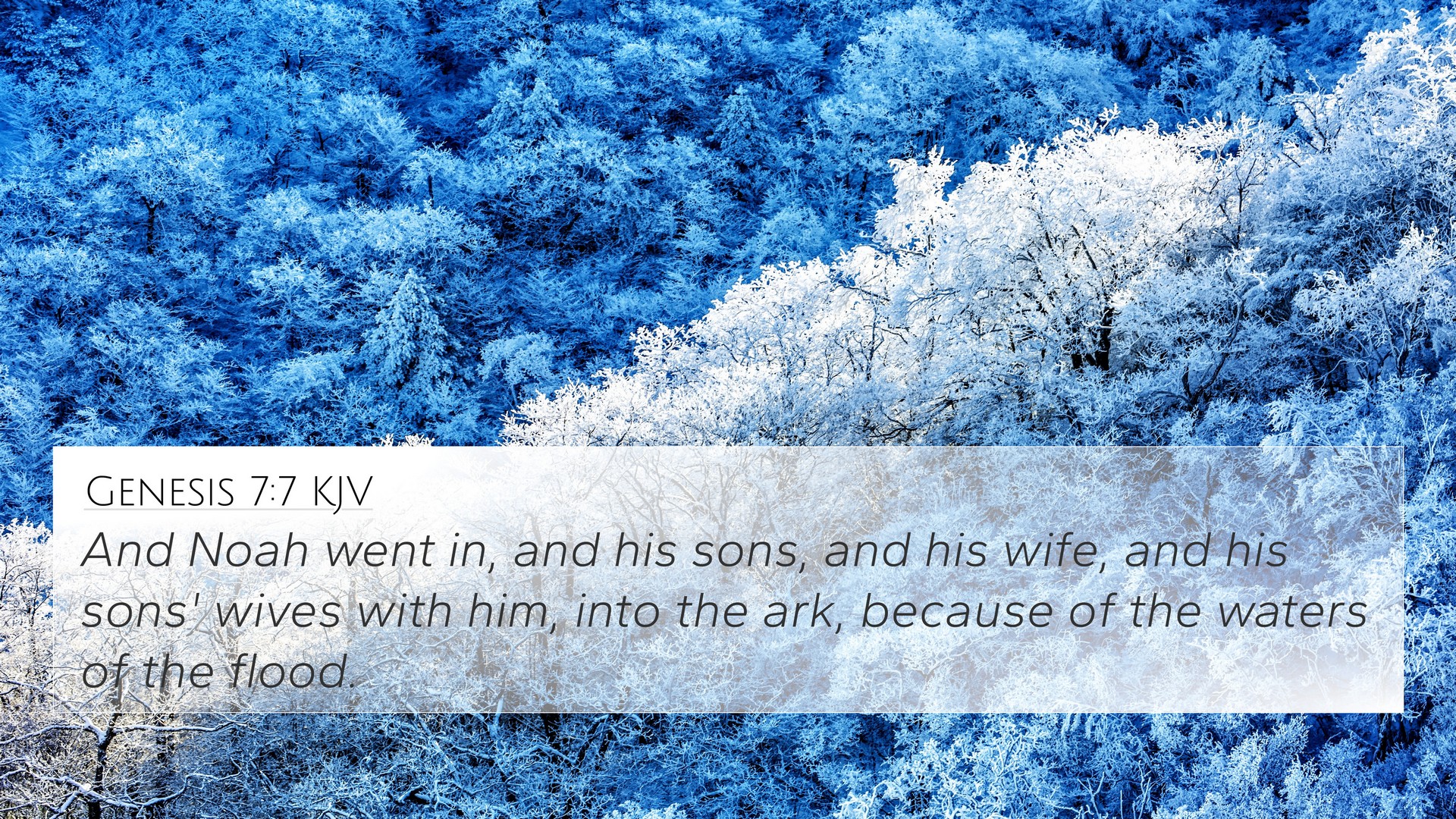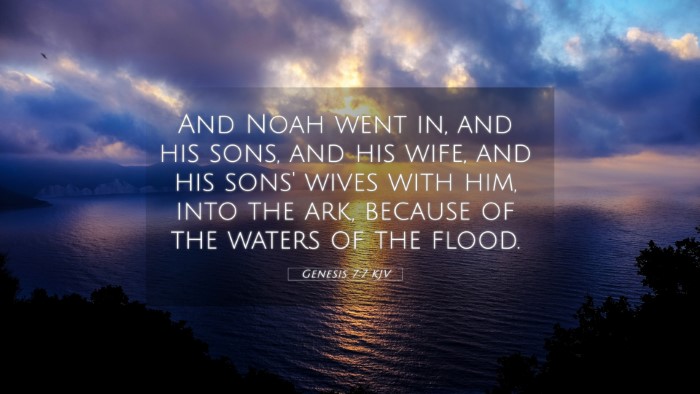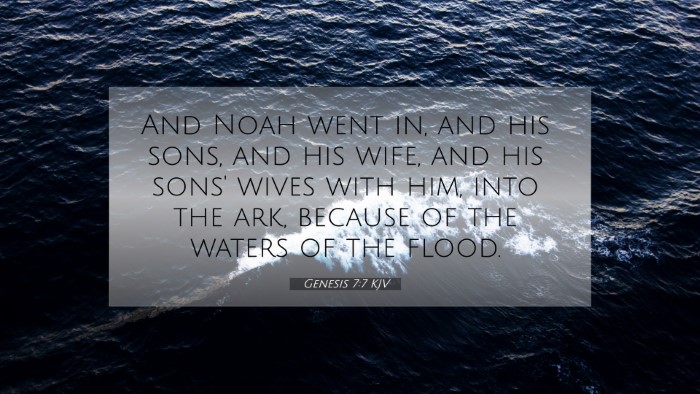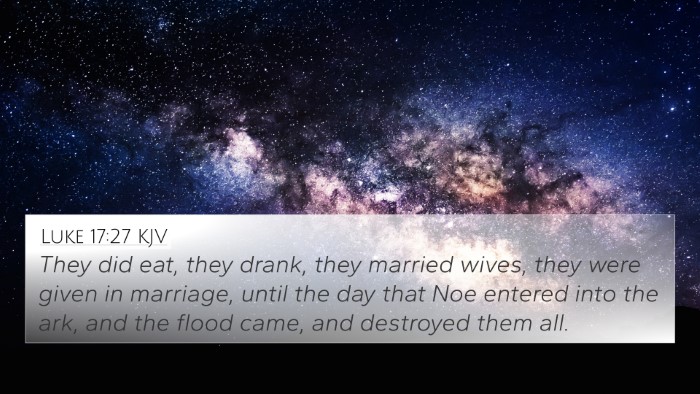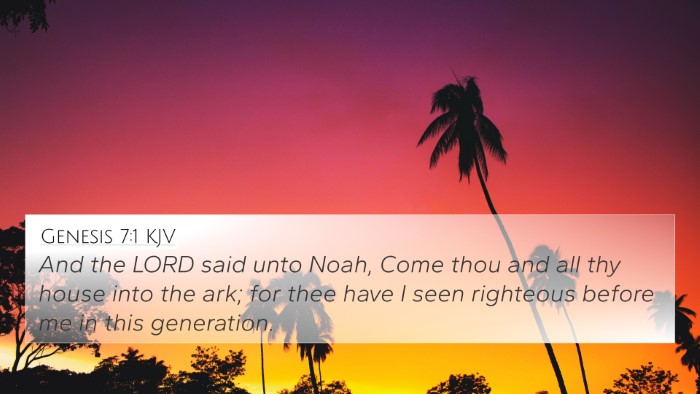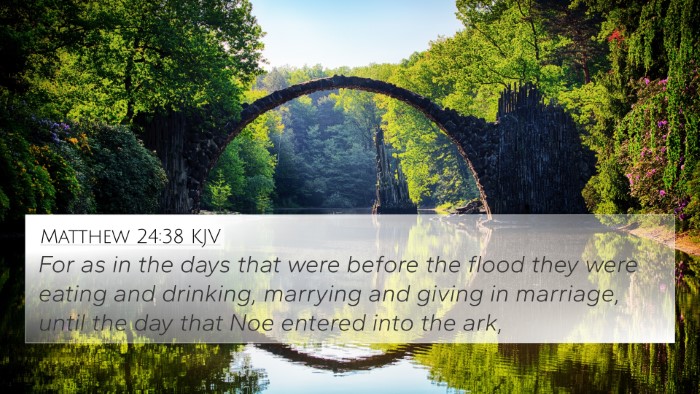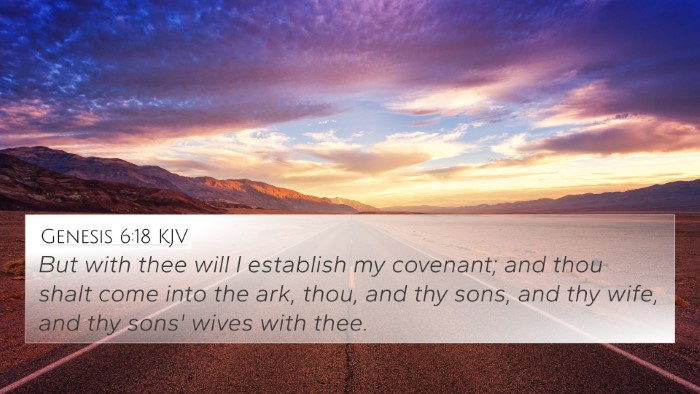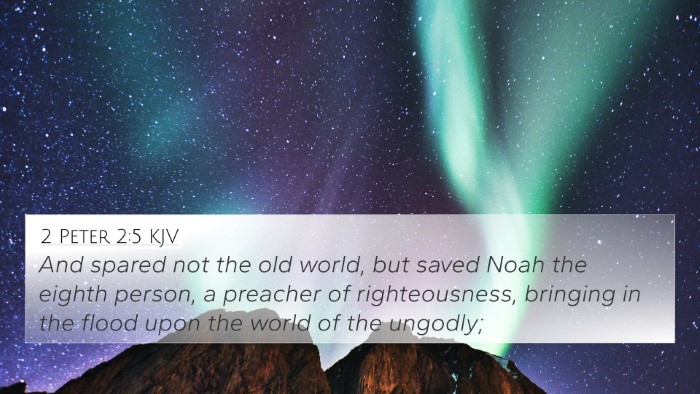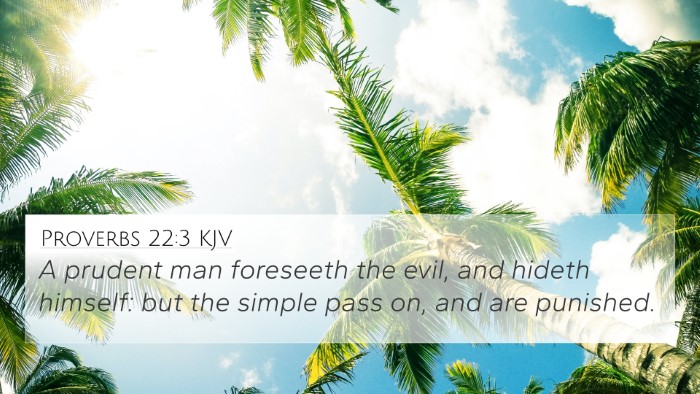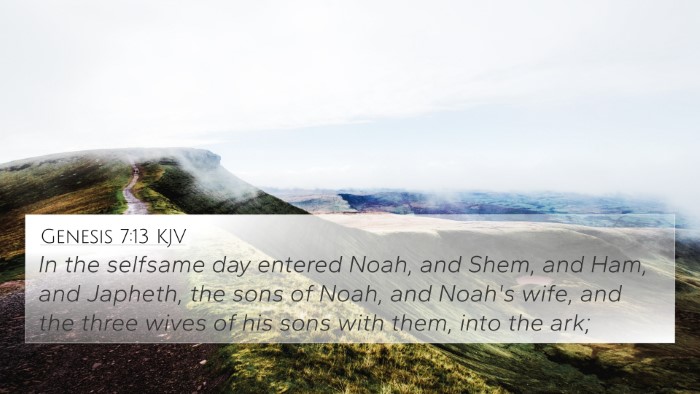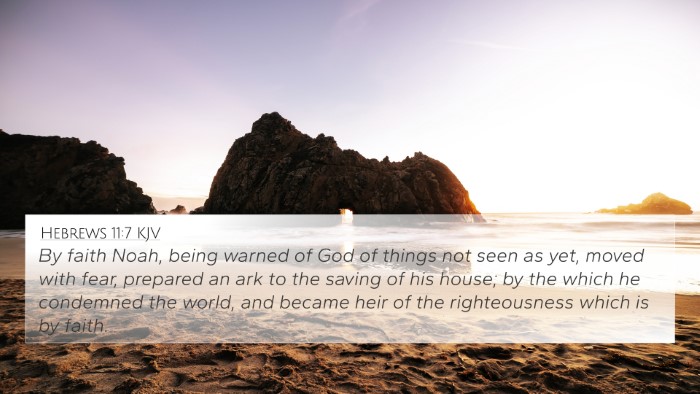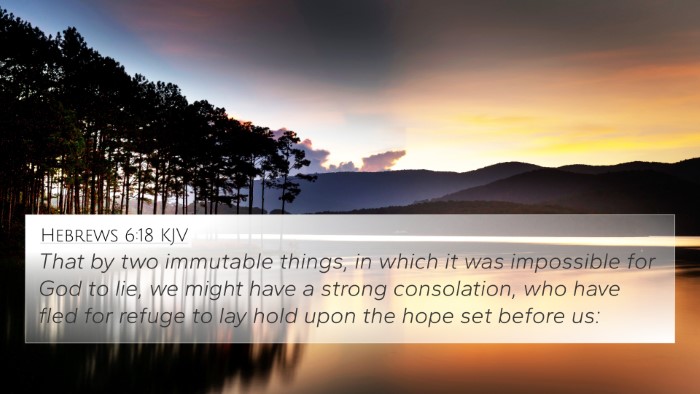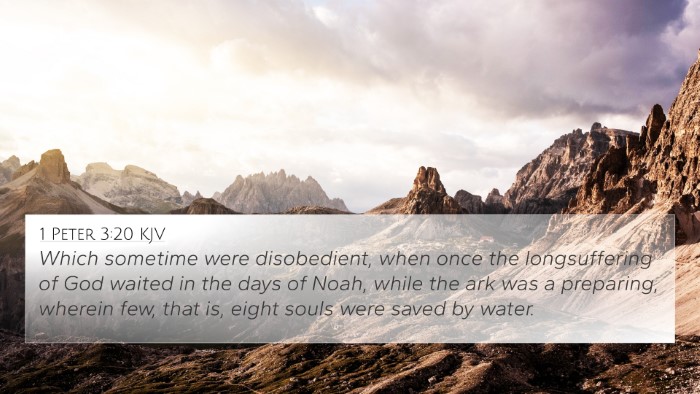Understanding Genesis 7:7
Genesis 7:7 states: "And Noah went in, and his sons, and his wife, and his sons' wives with him, into the ark, because of the waters of the flood." This verse marks a significant moment in the narrative of the Great Flood, illustrating Noah’s obedience and the fulfillment of God's command.
Context and Significance
The context of Genesis 7 can be observed through its placement within the larger narrative of the Book of Genesis, where God decides to purge the earth through a flood due to humanity's wickedness (Genesis 6:5-7). Here, Noah's family is chosen for preservation, highlighting themes of obedience, faithfulness, and divine judgment.
Commentary Insights
- Matthew Henry: Emphasizes the safety of Noah and his family within the ark as a symbol of protection from judgment. He notes that Noah's entry into the ark represents faith in God’s promise of salvation.
- Albert Barnes: Highlights the importance of family unity in this act. Barnes notes that Noah’s actions encompass not just himself but his entire household, thus illustrating the collective nature of salvation through faith.
- Adam Clarke: Discusses the significance of divine guidance in the construction of the ark and entry into it, suggesting it represents a direct response to God’s prior instructions and seal of protection against impending doom.
Bible Verse Cross-References
This verse connects to several other scriptures within the Bible, reinforcing its themes of salvation and divine judgment:
- Hebrews 11:7: This verse speaks of Noah's faith in preparing the ark for the saving of his household.
- Genesis 6:18: God's covenant with Noah, where He promises to establish His covenant with Noah and his family.
- 1 Peter 3:20: Highlights the saving aspect of Noah's family through water, presenting a parallel with Christian baptism.
- Matthew 24:37-39: Jesus draws a parallel between the days of Noah and His second coming, emphasizing unpreparedness of the world.
- Luke 17:26-27: Another reference to the days of Noah, reinforcing the importance of the flood narrative in the context of preparedness and divine judgment.
- Romans 8:31: If God is for us, who can be against us? Reflects the protection Noah's family enjoyed.
- Exodus 12:23: God's protection over the Israelites during the Passover foreshadows the protection Noah's family received.
Thematic Connections
The story of Noah emphasizes key biblical themes such as:
- Obedience to God: Noah's unwavering faith and compliance in building the ark and entering it as directed by God.
- Family Unity: The preservation of Noah's entire household highlights the importance of family in faith.
- Divine Judgment and Mercy: While God judged the earth, mercy was shown to Noah's family, establishing a cycle observed throughout Scripture.
- Salvation through Faith: An overarching theme in the Bible that begins with Noah and spans through to the New Testament with the message of Christ.
Further Explorations
For anyone looking to deepen their understanding of Genesis 7:7, consider exploring the following:
- How to find cross-references in the Bible and navigate through the interconnected narratives.
- The impact of Noah's obedience on the unfolding of biblical history.
- The symbolism of the ark as a precursor to salvation in Christ.
- Links between the flood narrative and modern-day themes of judgment and grace.
- Comparative analyses of Old Testament stories of rescue and New Testament themes of salvation.
Conclusion
Genesis 7:7 provides a powerful glimpse into the faithfulness of Noah and the God who protected him. In addition to its direct meaning, this verse serves as a foundational reference for understanding the interconnectedness of biblical narratives through cross-references and thematic parallels. Engaging with this verse alongside its cross-references can enrich personal study and collective reflection on the Scriptures.
Reflective Questions
- What does Noah’s example teach us about obedience today?
- How can we apply the themes of protection and faithfulness from this narrative in our lives?
- In what ways can we see the continuity of God’s promises from the Old Testament into the New Testament?
